How periods affect weight
The hormonal changes that occur in the body with the onset of menstruation are reflected in a woman’s weight. During phase 2 of the cycle, the concentration of progesterone, the pregnancy hormone, increases in the body. Under its action, the enzyme lipoprotein lipase is activated, the body begins to extract more nutrients from the incoming food and store fat.
For some, weight continues to increase during menstruation. This is due to an incorrectly formed diet during the onset of premenstrual syndrome.
Edema also contributes to weight gain. The accumulated excess fluid provokes a feeling of heaviness in the stomach and nausea. The accumulation of water in the brain tissue causes irritability, nervousness, and depression. Changes in hormonal levels also lead to mood swings.
A few days after the start of menstruation, the hormonal levels stabilize, the swelling goes away and the woman manages to take control of her appetite and reconsider her eating habits.
Health problems

It happens that months of training and proper nutrition do not bring any changes in weight, or even body weight is steadily growing despite all efforts. The reason may lie in the state of health, and among the possible problems, a medical examination most often reveals the following in women:
- Hormonal imbalances. Diseases of the thyroid gland, taking hormonal contraceptives, menopause - the reasons may be different, but the result is the same: you cannot lose weight. In addition, fat itself is capable of releasing hormones that complicate the process of its breakdown. This fact, recently discovered by scientists, does not add enthusiasm. Ladies with diagnosed hormonal imbalances should definitely discuss the principles of nutrition and the possibility of training with their doctor. Among the general recommendations, one universal one can be identified - do not indulge in sweets, so as not to provoke an uncontrollable feeling of hunger;
- Polycystic ovary syndrome. About 10% of women suffer from disorders of the connection between the pancreas and ovaries, which becomes the beginning of a long chain of pathologies leading to destabilization of blood sugar levels. Carbohydrates begin to be intensively deposited as fat, and weight inexorably increases. Secondary signs of the disease are irregular menstruation, acne, fatigue during training;
- Hypothyroidism. Insufficient activity of the thyroid gland also leads to weight gain due to the resulting deficiency of certain hormones. Symptoms: increased chilliness, constipation, dry skin and brittle hair, which have never happened before.
In general, any ailment accompanied by unexplained weight gain is a reason to seek advice from a doctor ; attempts to lose weight on your own in such cases can be dangerous.
What slows down weight loss? (video)
Do you gain weight during your period?
Many patients complain to gynecologists that on days 1-2 of the cycle their weight increases. During this period, it is undesirable to weigh yourself due to fluctuations in the concentration of progesterone and estrogen, and the production of serotonin, the hormone responsible for a good mood, deteriorates. Seeing that the weight is increasing, many people become upset and begin to eat stress with sweets.
Weight gain during menstruation is due to female physiology. If you watch your diet, reduce the amount of coffee and strong tea you drink, and give up alcohol, the increase that appears will disappear on days 5-7 of the cycle.
With the onset of menstruation, the hormonal levels change, and the extra pounds gradually disappear.
How much does weight increase during menstruation?
Due to fluid retention, deterioration of peristalsis and changes in food preferences, body weight increases. But you shouldn’t go on a strict diet if you notice an extra kilogram on the scale. These are physiological cyclic changes caused by sudden changes in hormone levels.
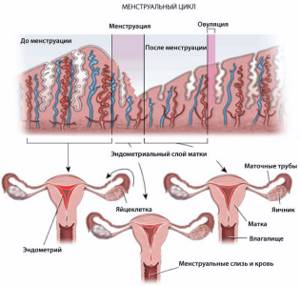
You can attribute the gained kilograms to hormonal changes that occur monthly in the body only if the weight returns to its original levels. Don't be alarmed if the weight doesn't go away during your period. It begins to decrease after day 3 of the cycle.
If kilograms remain after the end of menstruation, then to normalize the condition, it is advisable to add physical activity and review the diet. Sometimes after the end of menstruation there remains a small increase. An increase in weight by 300 g is not a problem, but if a girl gains weight like this every month, then she can quietly gain 3.6 kg in a year.
Normal weight gain before menstruation
Before menstruation begins, a woman may gain weight. There are no established standards; each organism is individual. An increase of up to 1 kg may disappear without a trace. This is considered acceptable weight fluctuation and should not be a cause for concern.
Many people note that body weight in phase 2 of the cycle increases by 2-3 kg. Such weight gain before menstruation is considered physiological if after its completion the condition returns to normal and the usual value appears on the scales.
For women who gain more than 3 kg every month, doctors advise to monitor their diet and reconsider their lifestyle. Such sharp fluctuations provoke the appearance of stretch marks on the skin.
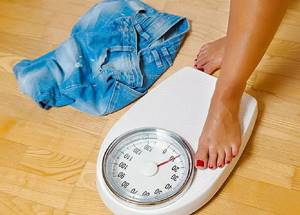
Is there any reason to panic?
Yes, you can predict your pre-period weight fluctuations in advance, but Dr. Dardik doesn't recommend getting too hung up on those numbers. Instead, you should eat a healthy diet and measure your weight regularly: every week, at the same time, on the same scale. We must remember that monthly weight fluctuations are the norm, and it is important not to overdo it in the pursuit of a beautiful figure.

Why does weight increase before menstruation?
People who understand female physiology recommend not to worry about every kilogram you gain on the eve of your period. There are several reasons why girls get better:
- fluid retention;
- increased appetite;
- change in diet (increasing the amount of simple carbohydrates and foods that retain fluid).
Progesterone is a pregnancy hormone; under its influence, the body starts accumulating reserves. Nutrients are absorbed more actively, while appetite increases. This is how the female body prepares for the possible onset of pregnancy.
In phase 2, the uterine mucosa tries to accumulate moisture. But the liquid cannot be retained only in the mucous membranes; it spreads throughout the existing fatty tissue. Also, under the influence of progesterone, urine begins to be retained. The following organs swell the most:
- uterine mucosa;
- buttocks;
- thighs, calves;
- stomach;
- face (nasolabial area).
The accumulation of fluid is necessary so that during menstruation the body does not begin to suffer from dehydration. 1-2 days before menstruation, provided that fertilization has not occurred, progesterone levels drop, and estrogen levels begin to increase. But swelling does not disappear during this period. Estrogens promote sodium retention in cells, which causes water to accumulate in them.
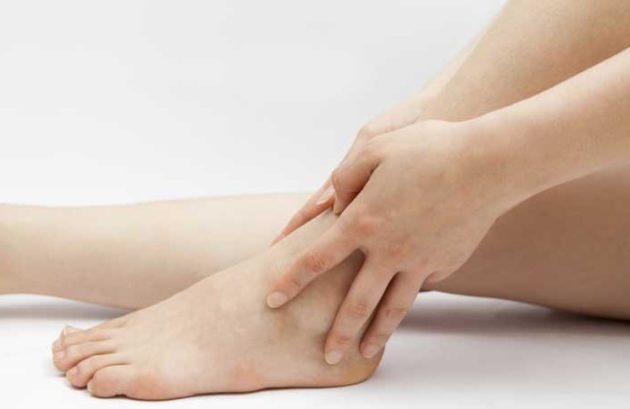
After the release of the egg, prolactin production begins. Its excess leads to water retention. Women who have elevated prolactin levels find it difficult to lose weight; all the gained kilograms remain.
What are volumes
What is more important when losing weight: the kilograms that go away or the centimeters that reduce the volume? When visually determining the mass of a person, we proceed from an assessment of his proportions. The logic is that the more good a person is, the heavier he is. To clearly understand the progress of weight loss, correctly measure volumes in certain places:
- Shoulder circumference in the armpit area.
- The brush is at its thinnest part.
- The waist is measured at the narrow part of the abdomen.
- The abdominal circumference is the widest part of the body.
- Thigh circumference is measured at the groin area.
- The measurement of the lower leg is carried out in the wide part of the calf muscle.

How to avoid gaining weight before your period
For girls who remain overweight after each critical day, it is advisable to reconsider their lifestyle. Particular attention should be paid to phase 2 of the cycle. If you curb your appetite and do not forget about the need for moderate physical activity, then there will be no gains. Women who adhere to the following recommendations do not gain weight. Nutritionists and gynecologists advise:
- minimize the consumption of fast carbohydrates;
- refuse food, the consumption of which leads to water retention in the body: smoked meats, pickles, sausages, and other harmful foods;
- increase physical activity;
- control weight.
Nutritionists advise excluding baked goods, confectionery, and chocolate from the menu. You can provide your body with carbohydrates through cereals, fruits, vegetables, and grain bread.

Women whose weight increases before their critical days try to get rid of it with the help of grueling workouts. As a result, the body experiences stress and the need for serotonin increases. The easiest way to stimulate the production of the happiness hormone is to eat sweets. With a lack of willpower, you can get a vicious circle.
Even more interesting:
What is Unidox prescribed for?
What is weight
After measuring the volumes, we will evaluate such a quantity as weight. Doctors say that this is an important indicator of the degree of physical development of a person. From the point of view of the average person, it is always superfluous, especially if the weight does not go away when losing weight, but stops. At home, you can weigh yourself using floor scales.
There are many methods and formulas for calculating the normal body weight of a person. A common calculation method is the Broca anthropometric index. It is very easy to use. In order to correctly determine your weight norm in kg, you need to subtract from your height in cm:
- 100 – for people up to 165 cm tall;
- 105 – with height from 165 to 175 cm;
- 110 – if a person is taller than 175 cm.
Why does weight increase before menstruation?
The menstrual cycle of each woman is divided into phases in which hormonal levels change. Each phase of the cycle is dominated by different hormones.
The menstrual cycle includes three phases:
- menstrual (follicular);
- proliferative (ovulatory);
- secretory (luteal).
The first menstrual phase begins on the first day of your period. It is bleeding from the uterine cavity due to endometrial rejection. The phase begins with the release of GnRH by the hypothalamus. Next, follitropin and lutropin are produced. Estradiol levels gradually increase. The follicles respond to hormones and gradually increase in size.

A week after the start of menstruation, the ovulatory phase begins. The dominant follicle continues to increase in size, the rest undergo reverse development. During this phase, luteinizing hormone (LH) is released into the blood. The follicle continues to develop, and the production of prostaglandin hormones begins. Estradiol levels gradually decrease. Looking ahead, it would be good to consult with gynecologists on the topic of training on critical days, in particular vacuum exercises for the abdomen.
Between ovulation and menstruation, the luteal phase (or corpus luteum phase) occurs. The follicle transforms and becomes the corpus luteum. Under its action, progesterone, estradiol and androgens are produced. Progesterone is another name for the pregnancy hormone; it is responsible for regulating menstruation and ensuring pregnancy. LH levels decrease. If pregnancy occurs, the corpus luteum continues to produce progesterone. If fertilization of the egg does not occur, the corpus luteum ceases to function. Against this background, the level of hormones decreases. In this phase, swelling and changes in the endometrium begin.
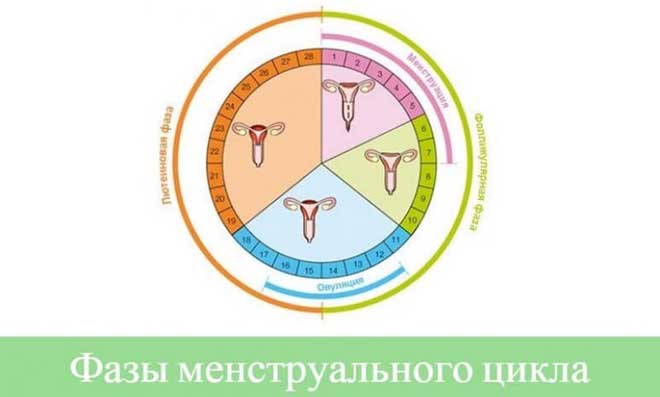
Before menstruation, the following symptoms are observed:
- soreness and enlargement of the mammary glands;
- swelling;
- headache;
- fatigue;
- rashes;
- irritability;
- increased appetite;
- depression;
- depressed state;
- digestive disorders;
- abdominal pain.
Progesterone plays a key role in changing physiological processes. It is under its influence that weight increases before menstruation. This is due to the effect of progesterone on metabolism and on all organs and systems of the body.
The effect of progesterone on a woman’s body:
- loose connective tissue of the endometrium becomes swollen, accumulates fluid and nutrients;
- promotes fat growth in order to protect the fetus and provide nutrients in case of pregnancy;
- increases appetite, especially increases cravings for carbohydrate foods;
- the uterus increases in size;
- the muscles of the gastrointestinal tract relax, which promotes better absorption of nutrients;
- Insulin production increases, tissues become less susceptible to it, and for this reason a craving for sweets appears.
Because of the above, the number on the scale increases before your period. This is temporary; after the start of menstruation, the weight usually returns to its normal levels.
Diet against bloating during menstruation
Many women suffer from bloating during their menstrual cycle. Therefore, you should avoid products that provoke this effect:
- yeast bread;
- cabbage;
- bananas;
- potato;
- grape.
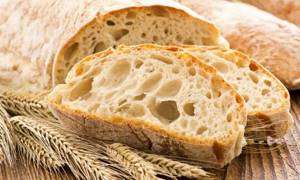
It is better to give preference to leafy vegetables and cucumbers.
How do periods affect weight?
Hormonal changes before menstruation force the body to store fluid that will be lost during menstrual bleeding. This swelling goes away 3-5 days from the start of the cycle. Metabolism slows down during menstruation, and appetite remains brutal, which can lead to extra pounds. Due to their depressed state, many women try to cheer up with chocolate and flour. Hormonal fluctuations combined with errors in diet are the main reasons why weight does not come off during menstruation.
How many days before menstruation does weight increase?
In the last phase of the cycle, the ratio of hormones changes dramatically. Due to a decrease in progesterone levels, prostaglandin synthesis increases. During this period, the level of serotonin (the hormone of happiness) decreases. At the end of the phase, progesterone and estrogen levels are at a minimum, which causes menstrual bleeding, the cycle begins again.
Under the influence of progesterone, you can see an increase on the scale. This happens at the very end of the last phase of the cycle, five to seven days before your period. The number on the scale may change every day. Weight is affected not only by the effect of progesterone, but also by an increase in calorie intake. Under the influence of hormones, appetite increases; due to premenstrual syndrome, girls lean on high-calorie and sweet foods. If a woman, under the influence of the hormone, does not control her appetite and begins to abuse unhealthy foods (fast food, baked goods, sweets, smoked foods), she will begin to gain even more weight.
Normal weight gain before menstruation
Depending on the diet and body characteristics, women can gain different weight before menstruation. An increase of 1-3 kg is considered the norm. If a woman during this period adheres to a diet, limits salty foods and plays sports, she may not gain weight or the weight gain will be insignificant (300-500 grams).
If a woman begins to rapidly gain weight before her period, gaining more than three kilograms, this indicates a hormonal disorder or overeating. In such cases, you should reconsider your diet and daily routine and consult a doctor. Slow carbohydrates (porridge, whole grain bread, durum wheat pasta) and fresh vegetables and fruits are introduced into the diet. You shouldn't stick to a very strict diet. The body is weakened during menstruation, a lot of iron is lost, so it is important to eat a balanced diet.
Do you gain weight during your period?
In the first days of menstrual bleeding, weight may not only not go away, but also gain. In this phase, the level of estrogen begins to rise, which contributes to the retention of sodium salts in the body. For this reason, in the first days of menstruation, water accumulates in the cells and swelling occurs. Due to the effect of progesterone on the gastrointestinal tract, problems with stool may occur and constipation may occur. In the first days of the cycle, these problems may persist, which is another reason for weight gain. If you weigh yourself at the beginning of your cycle, you may notice another weight gain.
Many women report weakness during menstrual bleeding. In such cases, physical activity is minimal, metabolism is slow, so you can still gain weight.
How much does weight increase during menstruation?
During menstruation, swelling and constipation are present, so weight may increase slightly. Each woman’s weight gain is individual and can range from 0.3 to 2 kilograms. Due to blood loss, a woman's body loses iron. Trying to compensate for losses, many women begin to increase the calorie content of their diet, sometimes giving preference to sweets, flour and fatty foods.
How to avoid gaining weight before your period?
To avoid weight gain by the end of the cycle and during menstruation, you should adhere to the principles of proper nutrition. During premenstrual syndrome, women eat unhealthy foods (chocolate, flour, fatty foods, high-calorie foods) when they are in a bad mood.
In order not to gain excess fat before your period, you should follow the following dietary principles:
- exclude semi-finished products and smoked products (sausages, frankfurters, lard);
- do not eat fatty foods;
- stop eating fried foods (especially potatoes);
- exclude sweets and flour;
- remove saltines and snacks from the diet;
- limit alcoholic drinks as much as possible (they not only contribute to the appearance of edema, but are also very high in calories);
- add porridge, fresh vegetables and fruits to the menu;
- increase iron-containing foods in the diet (buckwheat, liver, pomegranates, seafood, spinach, oatmeal, legumes);
- reduce salt intake.
In the last phase of the menstrual cycle, moderate physical activity and exercise are recommended, such as walking in the park or morning exercises. Light activity that brings emotional satisfaction increases serotonin levels and reduces appetite. Meditation and yoga classes are good for relaxing and lifting your mood.
Premenstrual syndrome is often accompanied by irritability. To lift their mood, women begin to eat sweets to relieve stress. To reduce irritability, it is recommended to drink herbal teas with a calming effect (chamomile, lemon balm, mint, valerian). To reduce swelling, you can add diuretic herbs (lingonberry leaf, yarrow, birch buds) to tea drinks.
Masha, Moscow. Massage for cellulite Massage after childbirth. Review by Nadya, St. Petersburg Body correction. Review by Eleanor, MSK Massage therapist Alexandra about massage therapist Valentin Denisov-Melnikov Special anti-cellulite massage. Julia, Moscow Nastya, St. Petersburg. Reducing volumes Yulia, Moscow. Massage results Ekaterina, Peter, review of anti-cellulite massage. Veronica, Moscow. Feelings from a massage Yulia, MSK: Valentin is a very good massage therapist. Try it! Archived version of the forum
Principles of proper nutrition

Losing weight during menstruation should happen correctly. The menu should contain a maximum of useful substances, the required amount of micro and macroelements. To follow the menu, you need to write out your own diet in advance.
Proper nutrition during menstruation for weight loss - list of products:
An innovative drug for losing weight by 30-40 kg! Removes even age-related fat without chemicals, liposuction, diets or exercise. Exercises
- Fruits and vegetables, except bananas and grapes. These fruits can slightly increase weight and retain water, thereby achieving the opposite effect;
- Seafood contains pure protein, which can reduce the pain threshold. Also, seafood in combination with herbs and vegetables can saturate the body with iodine, which has a positive effect on the thyroid gland;
- Milk and kefir. Just a glass of dairy or fermented milk product can compensate for the deficiency of calcium and iron, which rapidly leaves the body during this period;
- Chicken fillet. Pure protein, which is so necessary for the body during critical days.
To properly lose weight during menstruation, you need to create a varied menu, rich not only in proteins, but also in the right fats, which are found in large quantities in fish and eggs. When losing weight during menstruation, sauces and marinades, smoked meats and pickles should be excluded.
Menu for 3 days

Sample menu for 3 days for a diet during menstruation for weight loss:
Option 1:
- Breakfast - a boiled chicken egg, rye toast and a handful of fresh berries or fruits in season;
- Lunch – low-fat boiled chicken or turkey, steamed vegetables;
- Dinner – a glass of kefir or milk, a handful of fresh berries or dried fruits.
Option 2:
How to avoid obesity and regain an erection at any age?
- Breakfast - 200 grams of cottage cheese, 100 g of boiled oatmeal;
- Lunch – steamed fish, light vegetable salad with herbs;
- Dinner – steamed seafood or light cottage cheese dessert.
Option 3:
- Breakfast – oatmeal on water with seasonal berries;
- Lunch – vegetable soup – puree;
- Dinner – fruit salad and a couple of nuts.
It is worth remembering that frying meat is not recommended; the best methods of heat treatment remain: boiling, grilling, baking, and steaming.











